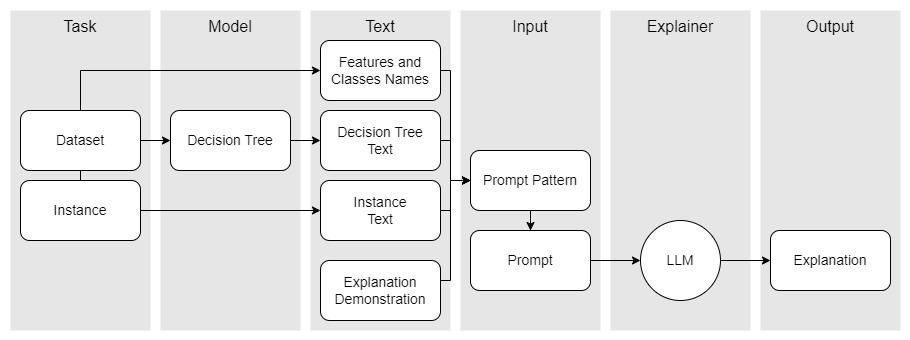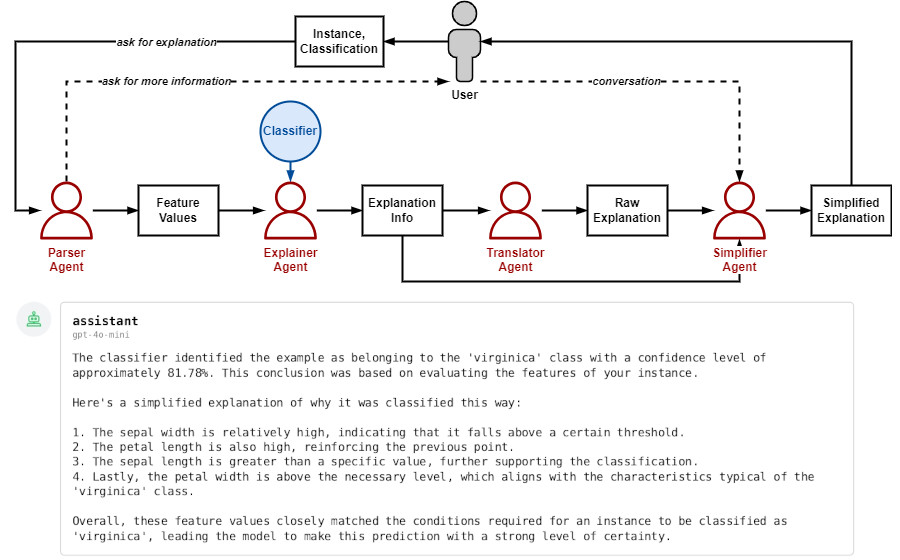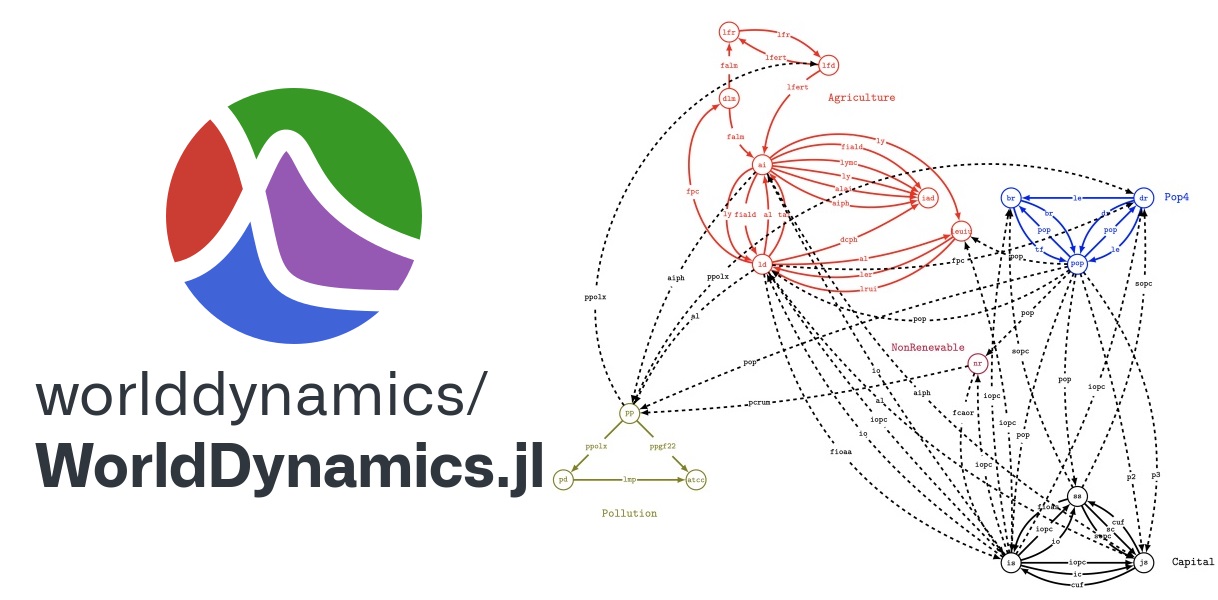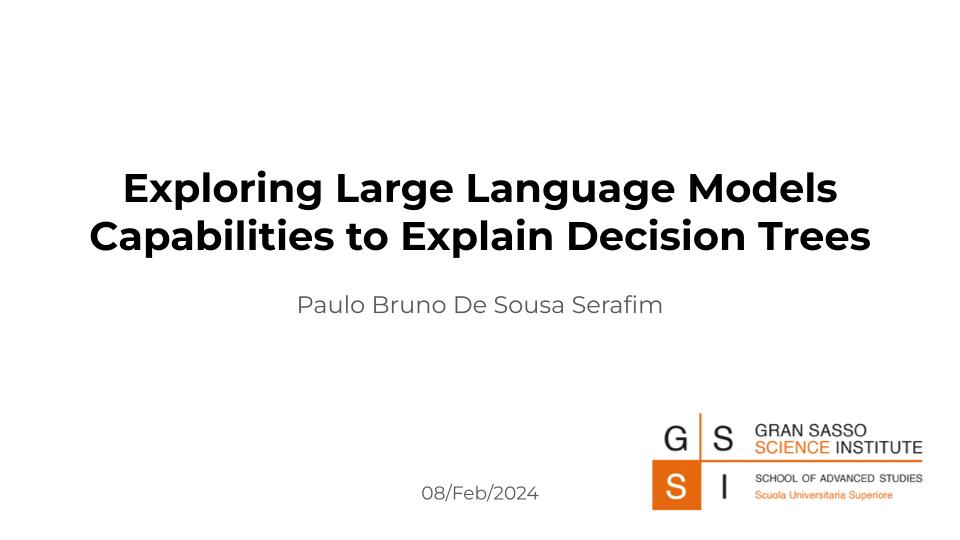Exploring Large Language Models Capabilities to Explain Decision Trees
Hybrid Human AI Systems for the Social Good (HHAI)
Paulo Bruno de Sousa Serafim1
Pierluigi Crescenzi1
Gizem Gezici2
Eleonora Cappuccio3,4
Salvatore Rinzivillo4
Fosca Giannotti2
1Gran Sasso Science Institute
2Scuola Normale Superiore di Pisa
3Università di Pisa, Università di Bari Aldo Moro
4Istituto di Scienza e Tecnologie dell’Informazione, CNR

Paper: [PDF]
Abstract
Decision trees are widely adopted in Machine Learning tasks due to their operation simplicity and interpretability aspects. However, following the decision process path taken by trees can be difficult in a complex scenario or in a case where a user has no familiarity with them. Prior research showed that converting outcomes to natural language is an accessible way to facilitate understanding for non-expert users in several tasks. More recently, there has been a growing effort to use Large Language Models (LLMs) as a tool for providing natural language texts. In this paper, we examine the proficiency of LLMs to explain decision tree predictions in simple terms through the generation of natural language explanations. By exploring different textual representations and prompt engineering strategies, we identify capabilities that strengthen LLMs as a competent explainer as well as highlight potential challenges and limitations, opening further research possibilities on natural language explanations for decision trees.
BibTeX
@inproceedings{serafim2024exploring,
title = {Exploring Large Language Models Capabilities to Explain Decision Trees},
author = {Serafim, Paulo Bruno Sousa and
Crescenzi, Pierluigi and
Gezici, Gizem and
Cappuccio, Eleonora and
Rinzivillo, Salvatore and
Giannotti, Fosca},
booktitle = {Journal of Open Source Software},
year = {2024},
series = {Frontiers in Artificial Intelligence and Applications},
editor = {Lorig, Fabian and
Tucker, Jason and
Lindstr{\"o}m,, Adam Dahlgren and
Dignum, Frank and
Murukannaiah, Pradeep and
Theodorou, Andreas and
Yolum, Pinar},
volume = {386},
pages = {64--72},
doi = {10.3233/FAIA240183}
}



